Rage Syndrome is a rare but serious behavioral condition in dogs, characterized by sudden, intense aggression that appears to come out of nowhere. Unlike typical canine aggression, which often has clear triggers like fear or territorial behavior, Rage Syndrome episodes seem unpredictable and unprovoked. It’s believed to have a neurological component and may be related to partial seizures in the brain.
While it can occur in any breed, research and anecdotal reports suggest that certain breeds are more genetically predisposed. Here are 10 dog breeds that appear to be more prone to Rage Syndrome.
English Springer Spaniel

The breed most commonly associated with Rage Syndrome, the English Springer Spaniel, even gave the condition its nickname: “Springer Rage.” According to studies, a subset of these dogs, especially show lines, may carry a hereditary predisposition to episodic aggression that’s not typical of their generally friendly nature.
Cocker Spaniel

American and English Cocker Spaniels have also been linked to Rage Syndrome. In fact, a 1996 study published in the Journal of the American Veterinary Medical Association found that aggression in Cocker Spaniels could have a genetic basis, particularly in solid-colored dogs like golden or red Cockers.
Belgian Malinois
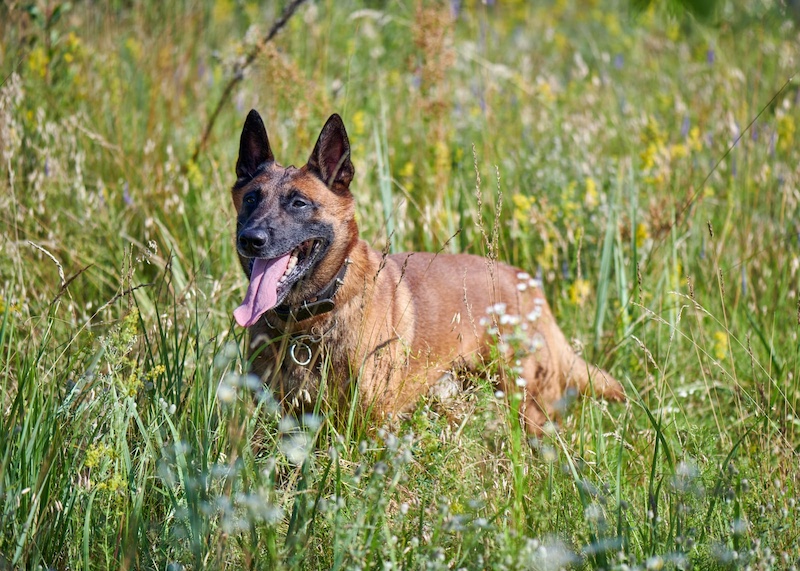
Known for their intelligence and intensity, Belgian Malinois are high-drive working dogs. While aggression in the breed is usually tied to improper training or unmet exercise needs, there have been scattered reports of sudden aggression episodes consistent with Rage Syndrome, especially in poorly bred or highly inbred lines.
Bull Terrier
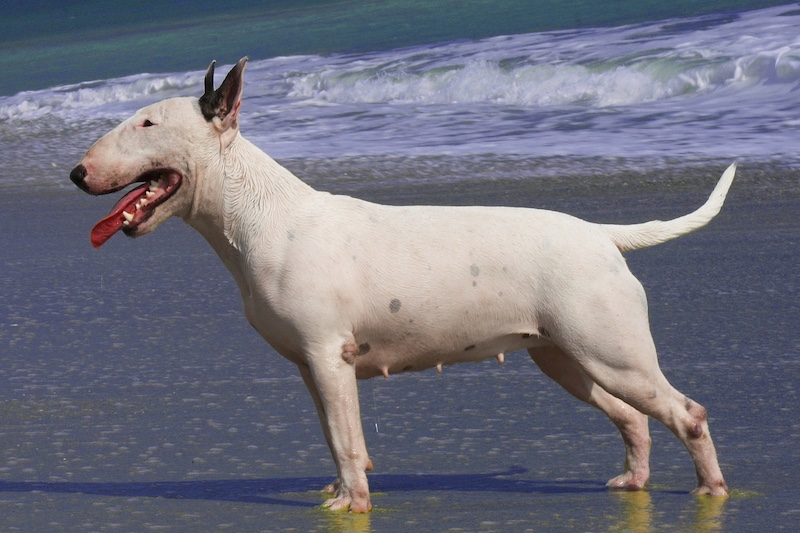
Bull Terriers are generally clownish and loving, but there are cases where they’ve displayed unexpected aggression, often described by owners as a “switch flipping.” Although rare, some veterinary neurologists suspect a link between this breed and the kind of seizure activity that may underlie Rage Syndrome.
Golden Retriever

Surprisingly, even this famously gentle breed has been associated with Rage Syndrome. While rare, some owners and trainers have documented episodes of unprovoked aggression, often followed by the dog appearing disoriented—hallmarks of the condition. Genetics may play a role in these isolated cases.
German Shepherd
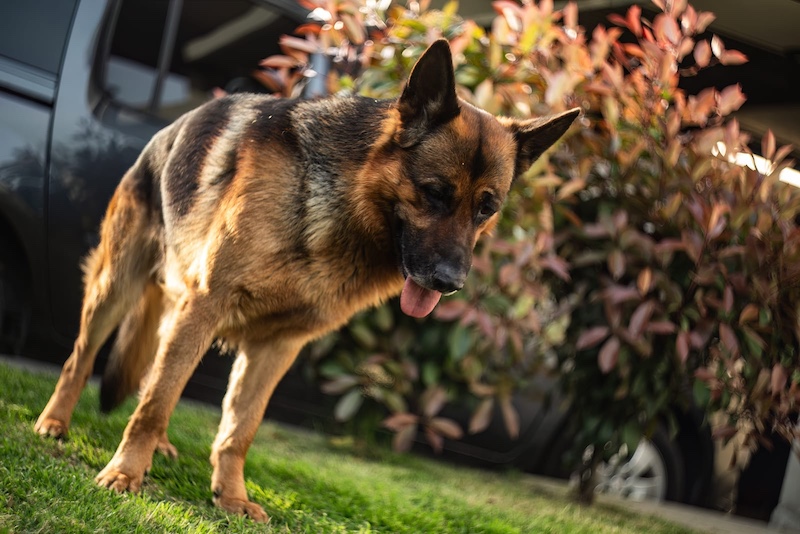
As one of the most popular and powerful breeds, the German Shepherd can exhibit aggressive behavior if poorly trained. However, when sudden, severe aggression appears in a well-trained dog with no warning signs, veterinarians may consider a neurological cause, including Rage Syndrome.
Doberman Pinscher
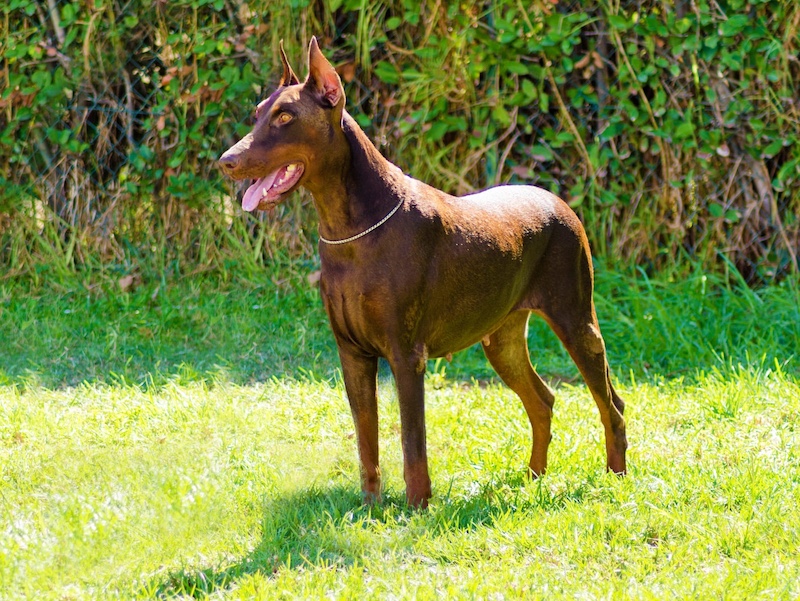
Dobermans are loyal and alert, but their strong protective instincts can sometimes mask neurological aggression. Some veterinarians have documented Rage-like episodes in Dobermans, although the evidence is limited and often anecdotal. The behavior usually emerges between 1-3 years of age—similar to other Rage Syndrome cases.
Chesapeake Bay Retriever
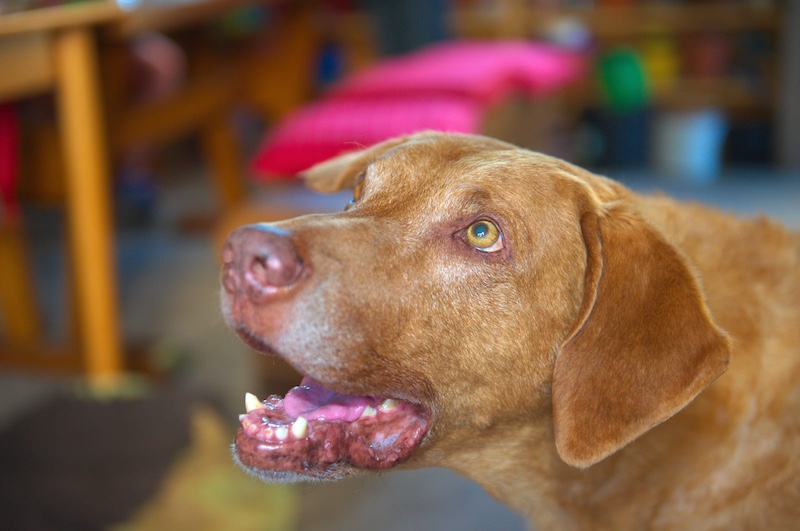
This breed is known for being more aloof than other retrievers and has a protective streak. There have been occasional reports of sudden-onset aggression in otherwise well-behaved Chessies, particularly in males. Some veterinary behaviorists consider the breed potentially susceptible to Rage Syndrome.
Saint Bernard

Large and powerful, Saint Bernards are generally calm, but a few reported cases have shown explosive and unpredictable aggression, often without prior warning. Due to their size, any aggressive episode can be dangerous, and some researchers have flagged this breed as possibly prone to neurological aggression.
English Bullmastiff

A guardian breed with a calm temperament, the Bullmastiff has also been mentioned in the context of Rage Syndrome. Sudden, intense aggression followed by confusion or a dazed state has been noted in a small number of cases. Again, genetics and breeding quality are likely contributing factors.
- Please Note: This content was created with the assistance of AI and thoroughly edited by a human before publishing.

